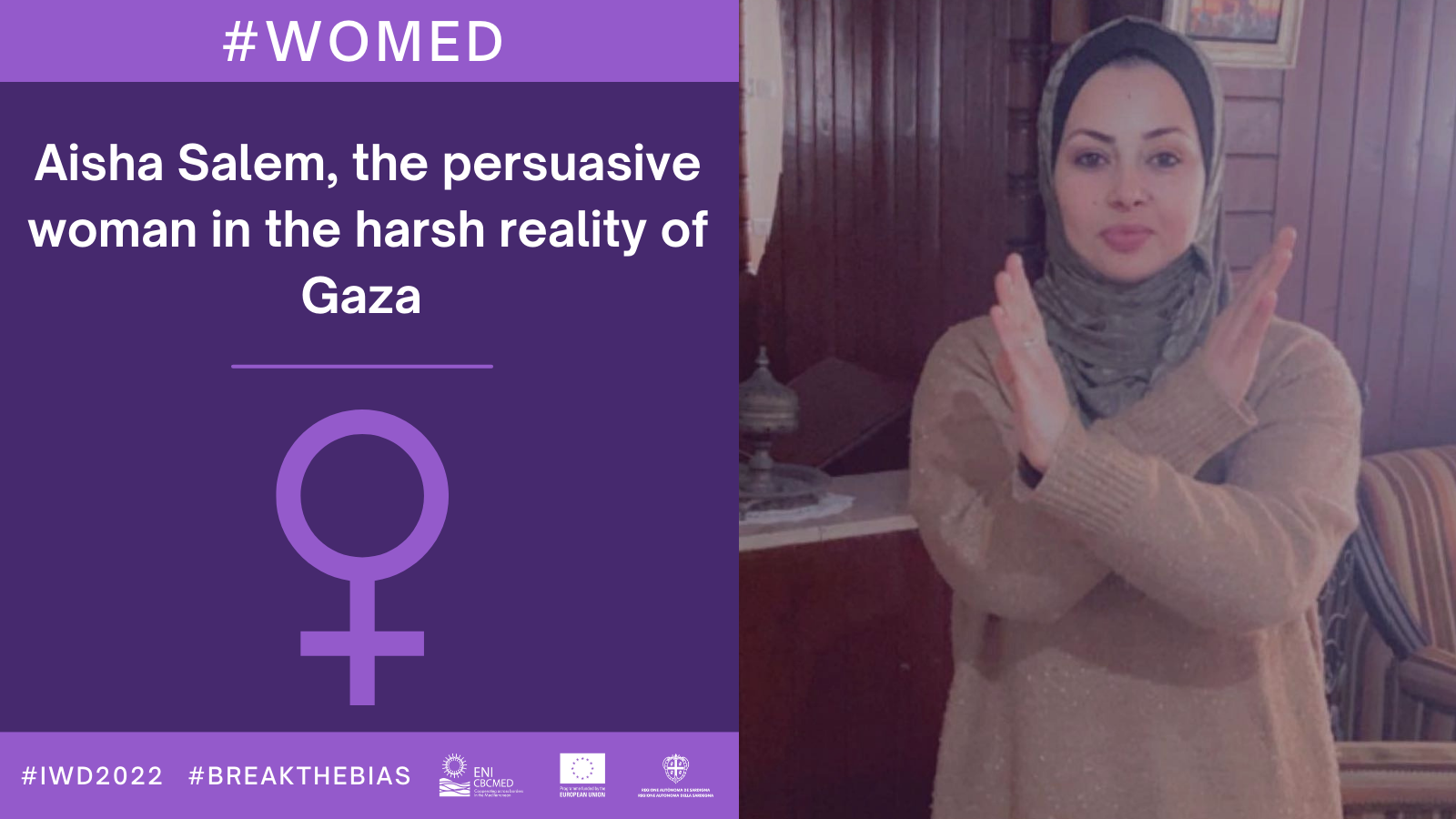#WOMED - Being the director of an NGO in Gaza: how Aisha Salem breaks the barriers in a challenging society for women
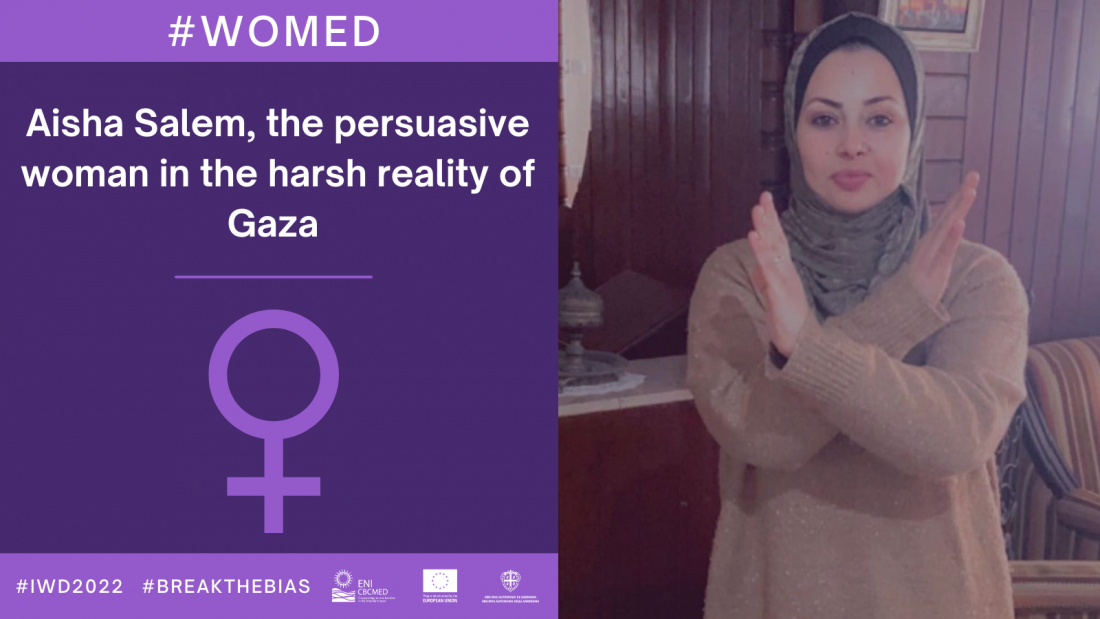
This is the first instalment in our series of seven feature stories published in the framework of the International Women’s Day to highlight women who have succeeded in breaking stereotypes in their community also through their participation in ENI CBC Med funded projects.
The world is full of contrasts but there are some areas in the world where the concentration of contrasts is even higher and its consequences in the quality of life of women are even more tangible. Gaza strip seems to be one of those places.
Gaza strip, 42 km long and 6 to 12 km wide with a population of 2 million, is not only the 3rd most densely populated area in the world, but also densely filled with contrasts. Gaza strip is divided into 5 governorates (North, Centre, Rafah, Khan Younes and Gaza) and you can perceive huge differences in such a small place whether you live in a rural or urban area, whether your family members went to the university or did not get the chance to go to school.
In a place where women still need the legal permission of their husband to travel, where women can’t go outside their village fearing men’s reaction, where women do not dare to uncover their faces in front of a stranger (someone outside their family or community), where it is unthinkable for girls to mix with boys in public primary schools, being the director of an NGO and responsible of a male team is courageous and uncommon.
This is the case of Aisha Salem, 33 years old and mother of 2 daughters. She is from Gaza. She has a university degree and have been working for the last 11 years for the Palestinian NGO, the Economic and Social Development Centre of Palestine (ESDC), based in Ramallah but with an office in Gaza. This NGO provides services to marginalised communities especially in rural areas. She started as an administrative assistance and she is now head of ESDC office in Gaza. She is also the representative of FISH MED NET project as ESDC is the Palestinian partner.
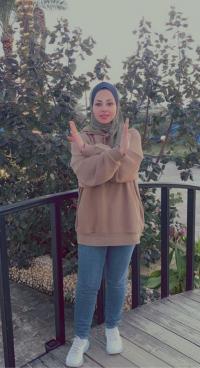
In the Gaza society where most women do not work outside their homes, being the head of a regional NGO supervising a team of 4 men is uncommon.
Her work requires field visits and sometimes travels abroad. Legally, she needs the permission of her husband to do this. Thanks to her husband and family who are open-minded, this is not a constraint for her. Women traveling for work in the Gaza society is not something common. This is probably the first stereotypes she breaks. When she became the director of the Gaza office, she started supervising a team of 4 men engineers, breaking another stereotype and the list of the stereotypes she breaks is long.
Let’s focus on the work she does with fishermen. In Gaza, fishermen are considered a closed community. They wake up very early, go to the sea, fish, come back, sleep and go fishing again. They interact much more with the sea than with people. As far as Aisha remembers, she only met 2 fisherwomen, but they stopped fishing as soon as they got married. As for women working in the fishing sector, she can easily count them: maximum 10. They are either the wives or the mothers of some fishermen selling fishes in the beach.
To reach Gaza fishermen, she first needs to inform about her visit to the union of fishermen, which is located in a remote area. For her first visit, she did not feel comfortable to go alone so she asked one of her men’s colleagues to go with her. Little by little, fishermen got to know her and got used of her visits so now she goes alone.
"We somehow broke this stereotype of women in rural areas who do not go outside their home to work."
One of her first meeting with them was to expose the idea of increasing their incomes through the participation of their wives by opening a kitchen where their wives would cook and sell the dishes. Their first reaction was a strong no. No way for our wives to work outside their homes.
How come men still refuse women to work knowing that unemployment rate in Gaza is so high and the economic crisis is so harsh. Because the unemployment rate is so high, men are at home, jobless and there are not enough job opportunities for all, so they prioritize men working outside, according to Aisha.
“The economic situation in Gaza is bad and unemployment rate is high. People there think: men are at home so if there are jobs, the priority should be for them and women should stay home.”
In rural areas, women “participate” in the work within the family framework and without getting a salary. For instance, this is quite frequent for cattle farming.
Back to Gaza fishermen, Aisha gathered with them again and again and she finally convinced them to open this kitchen project for their wives. That was an achievement and breaking another barrier.
As Aisha works for marginalised communities in rural areas, she also has to pay attention how she dresses. Aisha wears the veil but do not cover her face. Sometimes, depending on the people she will meet, she would rather wear the jilbab, a long and loose-fit coat that covers her entirely.
Breaking the fear
In a society where men control every single aspect of women’s lives, breaking the fear is probably the most important first step to do. Then, women can move on little by little, learn, gain confidence, believe in themselves, in their potential and their power, start to be independent, in the way of thinking and financially speaking. In Gaza, it is still a long journey, but at least the journey has started with women like Aisha. 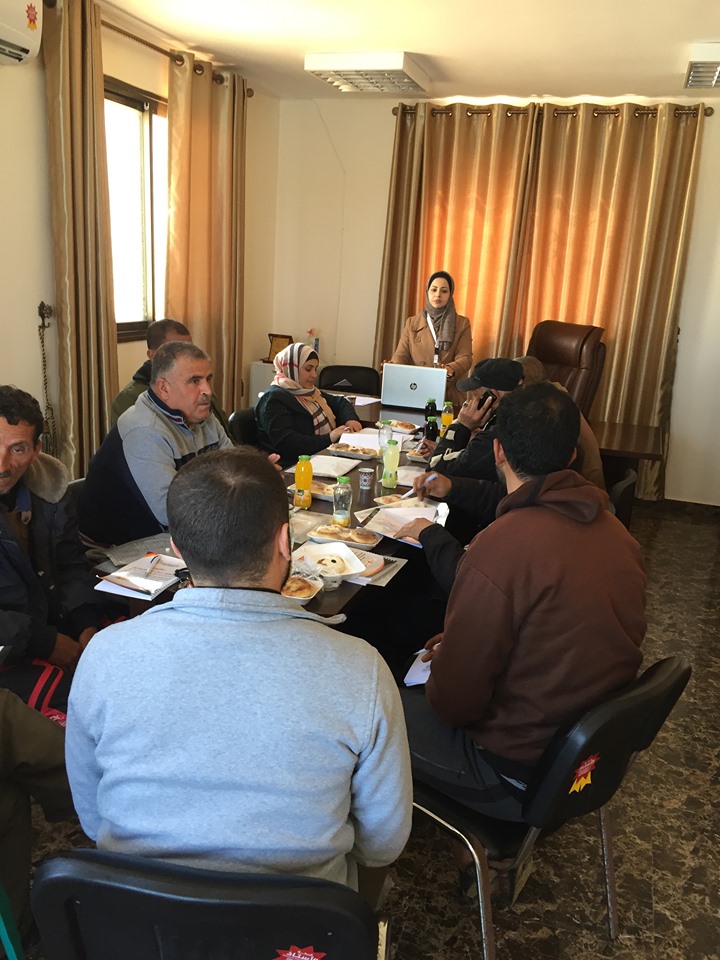
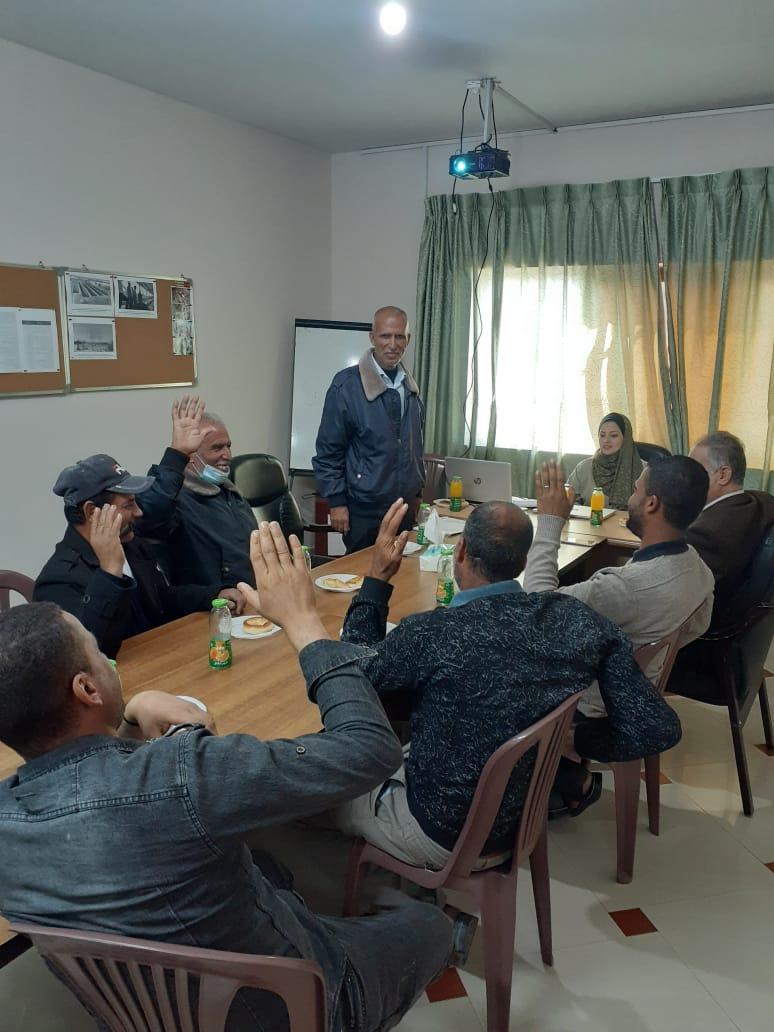
Aisha working with fishermen in Gaza










